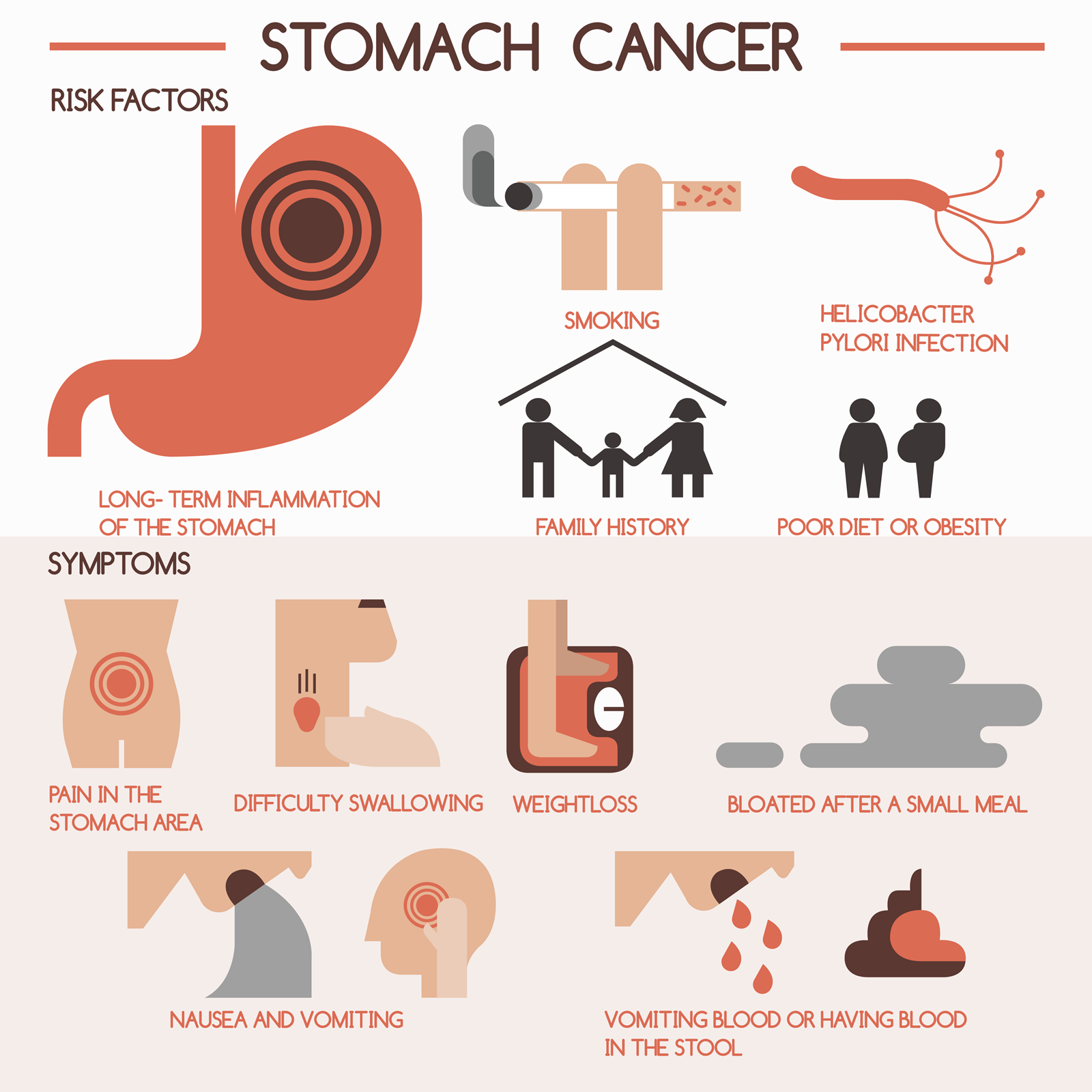What is Stomach Cancer?
- Stomach cancer (also known as Gastric Cancer) is a disease in which cells lining the stomach transform into malignant or cancerous cells.
- Stomach cancers tend to develop slowly over the course of many years.
- The risk that a man will develop stomach cancer in his lifetime is about 1 in 95 and for women the risk is about 1 in 154.
What are the Risk Factors and Causes of Stomach Cancer?
-
Age: Most people diagnosed with stomach cancer are between their late 60s and 80s.
-
Family History
-
Gender: Stomach Cancer is more common in men than women
-
Inherited and Acquired gene mutations
-
Lymphoma
-
Smoking
-
Obesity and overweight
-
Diets high in smoked salty foods and low on fruits and vegetables



What are the symptoms of Stomach Cancer?
-
Unfortunately, the early symptoms of gastric cancer are minimal and rare. Most Stomach Cancer symptoms only appear until the cancer has reached an advanced stage.
-
Indigestion
-
Heavy and bloated feeling after eating
-
Poor appetite
-
Stomach pain and discomfort
-
Nausea
-
Vomiting
-
Blood in stool or vomit
-
Loss of appetite
-
Heartburn
-
Weight loss
-
Yellowing of the eyes and skin
-
Difficulty Swallowing
-
Anemia
Contact our office today if you believe you may be at risk and/or are experiencing some of the symptoms listed above. Our team of doctors will determine the course of treatment that is best suited for you.
Q & A
A: Bloating, where your abdomen feels full and painful, especially after meals, can be a symptom of stomach cancer.
A: When the skin and whites of eyes turn yellow, they signify that you may be experiencing jaundice which is linked to liver problems and some cancers such as pancreatic or stomach cancer.
A: Stomach cancer can cause difficulty swallowing depending on where the tumor is located, however difficulty swallowing can also be because of several other disorders.
How is Stomach Cancer Treated?
For stomach/gastric cancer treatment, not just one single approach is used, and treatment often depends on the type and stage of cancer.
- Surgery: Surgically removing the cancer
- Radiation therapy: uses high-powered beams of energy to kill cancer cells
- Chemotherapy: A drug treatment that uses chemicals to kill cancer cells.
- Targeted Drug Therapy: Interferes with the ways cancer cells function
At HEMATOLOGY & ONCOLOGY CARE we customize your Stomach Cancer care so you can receive the most advanced, least invasive treatment with the fewest side effects. Planning of the treatment involves an interdisciplinary team of medical professionals. This usually implies a meeting of different specialists we have at HOC, called a multidisciplinary opinion. In this meeting, the planning of treatment will be discussed based on the relevant information summarized above.


